A trip to Kosovo: Kosovo is not France
Wednesday, 24.10.2012.
15:46

A trip to Kosovo: Kosovo is not France Due to this fact, we have tried, when it comes to the soup kitchens in the enclaves in the Kosovo Pomoravlje District, to provide bread by all means, and while the kitchens had its own bakeries, enough quantity of flour is needed at all times. Truly, when autumn approaches, and when B92 Fund starts collecting food for priority needs, we want primarily to provide enough quantity of flour, till the next May. And we succeed in doing so, securing flour for at least 2000 users. Last year, we have started the project of assisting self-sustainable functioning of soup kitchens, which includes providing seeds and devices for planting and harvesting, for planting vegetables, and buying off refrigerators for keeping the food in it during the winter. We have secured the irrigation system, and this year, it proved that this was crucial for the success of the wheat harvest and peppers and cabbage vintage, potato collection... I have been overwhelmed to see what is being prepared for the winter season and the work of soup kitchens in the Kosovo pomoravlje District in the forthcoming period. When I go to Kosovo, I am obliged every time to announce dates of entering and departing from Kosovo, along with a detailed route and timelines. Last time, I have entered Kosovo territory from the south, via the crossing check point Bela zemlja, where Kosovo police force members had welcome us and accepted my body guards (I have been under 24/7 police protection for two years now due to the assessment of the Serbian Ministry of Interior that my life is threatened), assisting us by escorting our convoy: I have visited several families in the south of Pomoravlje, afterwards arriving to Prekovac where the central storage of the soup kitchens is situated, and where we were accompanied by a patrol of US Army from Bondsteel, consisting of one Mexican and one Afro-American of Iraqi–Afghani experience. They were highly curious as to why a journalist decided to help soup kitchens, who ordered me to do so, and similar (I have invited them to join us in collecting food for the poor). Apart from KPS (Kosovo Police Force), KFOR had also joined us as escort. When we work on collecting food supplies, we always tend to collect only what is being ordered as priority, with very precise quantities. We do not want to act as philanthropists that gather unnecessary supplies, only for the sake of being regarded as such. Moreover, we always tend to control the food quality, so that it is of top quality, not goods on the verge of being expired. Finally, I always used to follow through all the way to its delivery to its final beneficiaries, I check on its storage, participate in making evidence, and making system for monitoring its expenditure to prevent any misuse. It goes without saying that the most important part of my engagement is meeting with the beneficiaries of this help, to comprehend their needs and problems, to hear about their impressions when it comes to the quality of food supplies, its quantity and the way in which it is distributed. Last time, escorted by my security team, along with KPS and KFOR members, I had visited Clinical Center in Gracanica, where we donated one incubator and inquired about their other needs for medical equipment. Afterwards, we went to visit Decani Monastery in order to discuss things with Father Sava pertaining to the needs and possible projects in Decani. Walls encompassing this monastery, double ramparts, and the story of the circumstances in which this brotherhood lives reminded me of medieval problems, siege, conquests, etc. Ramush Haradinaj (a former leader of the Kosovo Liberation Army - KLA) is ruling party in Decani municipality. Father Sava says that he hadn’t visited the city of Decani for more than a decade. In it, just a single Serbian woman from Belgrade works in city administration. It is full of systemic problems. Nevertheless, the brotherhood reminds me most of a successful management team of some modern company. Namely, they produce an excellent vine from the monastic vineyards and from the neighboring enclaves; they also manufacture brandy, cheese, honey and honey products. The monastery is also active in publishing activities, they made candles, etc. There are lots of visitors, both local and foreign. I am under impression that the Italians that protect the monastery are the biggest believers and tourists. All their products easily find the way to the prospective buyers. Afterwards, we had visited Devic monastery. It was getting dark already, and at the entrance in the village, the Morocco battalion was still present. Six nuns live completely alone in the hostile environment. Eighteen hectares of land is impossible to cultivate without incidents and imminent danger. That is why the monastery is currently being encompassed with the secure walls, using Decani as role model. We have secured around EUR 60.000 for that wall that is being built. The security takes us to the crossing check point Merdare and we continue our trip to Belgrade. This time, in the evening prior to my trip, I’ve been informed that members of my security team will not be given consent to cross the border. The trucks had already been on their way. I decide that we go, no matter what. We are faced with complications on the border crossing. Albanian side does not give permission to my police protection team to enter. I try to reach the representative of the international community in Pristina, but all the lines are disconnected, unavailable. I call my Albanian friend and colleague working for one media outlet in Pristina who ordered the latest edition of “Stripoteka”, a comic book Tex Willer (although I was not able to find it, so I fetched him a comic book Zagor), along with Svetislav Basara’s new titles “The Longevity“ and the previous novel “Mein Kampf“, along with “Tito is dead“ by Mirjana Novakovic, and another of her former titles. I find his order pretty much interesting. Agron only asked for editions not to be in Cyrillic, as he finds it hard to read. I imagine how much he will be disappointed if I don’t make it. I inform him that his fellow countrymen had confiscated Stripoteka, making a joke out of it, saying that he should alarm international organizations about the problems I am faced with. After that, I contact donors and shippers and they inform me that four trucks loaded with food supplies had passed customs, heading towards Prekovac. This is such a relief. I call Bajram Rexhepi whose police members prevent me cross the border with the security members of Serbian police. I explain to him that I am under police protection for two years now as my life is threatened and that, wherever I go, I am accompanied by security, under the order of Serbian Ministry of Internal Affairs, so they are obliged to follow me and protect me. I said that I have been visiting France recently, and there were no problems. He responds roughly that Kosovo is not France. I said that I am aware of that, and that I understand, but that we have been faced with additional threats since the series Insider starts airing, entitled Patriotic Plunder. He says: “I don’t care. You will be given our security”. I told him that I cannot accept this. He concludes that neither the members of my security nor the weapon pieces can cross the border. I contact the commander of the unit whose members protect me. I consult with him whether we could continue unarmed. He said that this is my call to decide, and when I ask about safety assessment, I am given a kind of signal that I might go. People from Prekovac call us to find out of our whereabouts as we are running late. They got worried. The lawyer that is protecting legal framework of B92 for years now, as a true devil’s advocate sends the following message: “Be careful, if they want you to enter unarmed, it must mean that they want to make the assassination easier“. I am aware of the danger myself by the fact that we are first being unarmed and then left without the escort of the local police. Then you represent an easy target, a sitting duck. Still, after consulting with my escort, we decided to go unarmed as the people are waiting for us, and we must arrange future campaigns, including the issue of expanding self-sustainability of the whole project, etc. We cross the border, and Albanian customs officers take us one by one to the premises where we are being searched and groped, and they inspect our car very thoroughly. They do not allow us to make telephone calls. As we managed to keep Stripoteka and other books, we cross the border and head towards Pristina and Gracanica. The mobile signal is lost, so if we do face with any problems, we will not be able to call anyone. The driver respects all limitations. We are quite late as it is. I know that some of the soup kitchens’ beneficiaries will wait for us. We reach Prekovac. Svetlana Stevic that heads NGO Majka devet Jugovica welcome us, the truck full of flour donated by Elixir Group is being delivered, while the flour sent by MK Group is already delivered, along with the canned food and seeds and fertilizers of Victoria Group, ketchup of Polimark, Aleva spices, and household chemicals of Henkel are being expected. The beans bought in Gracanica by B92 Fund as its price is more favorable than in Belgrade had also arrived. I feel great satisfaction when I see almost full warehouse. The biggest thing are the products that the employees of the soup kitchens and the beneficiaries had produced by themselves on the land planted with the seeds that we had earlier supplied to them, along with irrigation and watering system that helped them generate good harvest, regardless of the unfavorable weather conditions. The refrigerator we had bought last year is full of supplies. I always ask them to let me pour the prepared meals in person, so that I could get in touch with the beneficiaries. They are satisfied with food and its quantity, while the fact that they have freshly baked bread represents additional content. This is most important to me, and I don’t ask about the issue that is most painful, the attitude of Serbia as their mother country and about its favoring the north of Kosovo. Although they are second-class citizens on the territory where they live, I am aware that they feel as third-class citizens as some of the Serbian leaders from the north of Kosovo (elite) regard them as low-grade Serbs, who they refer to as Shqiptars. This region and those institutions are rarely being visited by the politicians. When they do come, this is without any will or sympathy. They recount an occasion when one of the politicians of the Serbian government had brought large number of journalists in order to announce the assistance they will get soon (as if Serbian government is an NGO), and upon seeing freshly delivered meat in the refrigerator shipped from commodity reserves, he called the journalists (making a joke that failed) to take the meat themselves as they always complain about low wages… I establish contact with the people that work there and have salaries for that paid for the time being, but they do not know until when they will be paid as this problem is not resolved in a systematic way. Contributions are not being paid as they are “not registered” due to the lack of systematic solution. However, they do not lose enthusiasm. When they divide food, they go to their lands to produce it. They visit the old and the weak, they give them bath and take care of their living premises, although they are not obliged to do so… One of the staff members that is known to me as highly devoted in his job since the start, says that his wife gave birth to a baby two days ago in the maternity ward in Gracanica, and that the situation there is very hard, so the doctor at one point asked whether to send her to Mitrovica hospital. He had gone through hell until they got a baby several hours later, and we congratulated him. We are assisting the maternity ward as well, but obviously the problems there are much more complex. This region has the highest birth rate, and Serbia should treat more seriously the circumstances in which maternity wards are, improving working conditions of the medical staff, etc. From discussions with my colleague journalists and the citizens, I got the impression that every issue presents a theme for Insider. The problems they face with are rather dramatic. They mention the process of car registration, license plates, etc. Those are the problems that might look banal to someone, but they represent the basic living needs of the people in those regions, and their mobility. It is apparent that Insider had become the substitute for the work of all the institutions that do not do their job, so they believe that if Insider treats it, the issue in question will be instantly resolved. I understand the reasons for this. The citizens are completely thorn between Belgrade and Pristina, Mitrovica and Gracanica, and within Gracanica, between its mayor under Kosovo standards, and the other mayor of the municipality under Serbian rules. The result of this hyper-production of authorities is complete anarchy and the rule of those who seized all the power with patriotic boosting. I inquire of how Insider has been perceived. It is the same situation as when we worked on investigating war crimes in Bosnia, Croatia, and on Kosovo. They are aware of what is going on for years - thievery of the elite, along with great abuses. But petty abuses also hurt. Combined with media isolation, indoctrination, monopolies over institutions… So, they decide to launch the campaign of revealing and identifying the perpetrators, whose offenses are general knowledge, and then they start asking themselves what will happen to them. What is state policy and what will happen to them if there weren’t for those who evidently steal, abuse... They say: “Serbian government hadn’t done anything to help us, while those from the north of Kosovo call us Shqiptars, but what can we do, Belgrade is too far away, while Mitrovica had imposed itself as a new center“. The division on the low-grade Serbs from the enclaves and high-quality patriots from the north of Kosovo, that had imposed this division in the first place, clearly speaks of the nature of the so-called patriotism of the north Kosovo leaders. Isn’t it logical that those who are multiply isolated needs special care, isn’t this exactly the real criterion for patriotism and responsibility? I meet with Bishop Teodosije in the Gracanica monastery whose tranquility, spirituality, mildness, smile and resourcefulness instill trust. We analyze the aftermath of this year’s harvest, as well as the activities of the NGO Majka devet Jugovica... We present him our plans for production expansion, for the establishment of the goat farm and manufacture of goat cheese. I see that he is very satisfied with the fact that there is expansion of such projects that employ lots of people. He inquires when the potato extraction is planned, as he wanted to get the attendants of the Theological School from Prizren to join the locals in this. We also discuss the possibility of making the population census, in order to have precise data, and due to forming an adequate picture on the social position, in order to be able to assist those who are in the greatest need in the most efficient way. We also discuss the possibility of establishing a home for the elderly. Svetlana says that it would mean much more if we could help in establishing a mobile teams that would everyday tour Kosovo pomoravlje District visiting the old and weak, bringing them food and giving health and hygienic support. The Bishop agreed with this idea and gave his blessings to start working on gathering funds for this project. We tour the monastery. It is full of German soldiers who are rather fascinated with the frescoes. We buy monastery products that are being handmade by the nuns, beautiful jams and vine. I then meet with our correspondents from Kosovo. We discuss problems with which they face. We are talking about mere survival. The colleague says that he is very concerned with the notion as to in what circumstances his children will grow up. We discuss everything that is available to the children in the urban parts of the country that is not on a disposal to the children living in Kosovo. Real problems and dilemmas. We agree on their future activities. We will try to expand our campaigns there and apart from their corresponding activities, they could also work as activists for our humanitarian and social campaigns. We will try to expand Battle for the Babies to the territory of Kosovo as well. I know that Kosovo maternity wards and hospitals currently need some fifty incubators. We need local partners for conveying this. We will work on it. In the evening, we head towards Merdare crossing. We pass it with no problems. On my way to Belgrade, I write new projects to work on, and I exchange emails with the potential donors. In Belgrade in the meantime, the escalation of rhetoric pertaining to the series Patriotic Plunder is being intensifying, the betrayal of Serbian national interests is mentioned, and the attack on the whole Serbian population living on Kosovo… It is seen already in my career, from the short war in Slovenia, via Croatia, Bosnia and Kosovo. And this population in which the “patriots” swear, finally faces with the gravest fate. I remember when B92 was regarded as a symbol of betrayal by the Serbs in Croatia due to our objective reporting and anti-war campaigns. But when the Storm took place, we were among the rare ones that organized big humanitarian campaign, with the aim of helping the convoy of the refugees all the way to Banjaluka with the assistance of Belgrade taxi drivers, while the Serbian authorities attempted to hide all 200.000 refugees from the public, redirecting them towards Kosovo. Several years ago, I have again met with those refugees, now escaping from Kosovo, who are still scattered in the collective housing facilities in the eastern Serbia, without any hope whatsoever that they would ever become the citizens with full rights, while those who used to brag about patriotism and hid behind those people are in great businesses, engaged in the new battles for the Serbdom. B92 does not work on the series Patriotic Plunder with the aim of damaging any Serb in Kosovo. Quite to the contrary, we work in the interest of every citizen as it is the obligation of the Serbian state and those who work on its behalf to take care of every citizen equally, so that every citizen is offered elementary living conditions. We think that this hadn’t been done so far in a systematic and responsible way, no abuses of office were sanctioned that are going on for years, no evidence has been made on the state of every single citizen, and there are, unfortunately, small number of them, so this is not an impossible mission. We want to stop sacrificing the citizens due to private or party interests, to stop voluntary blood donors to offer someone else’s blood. We want the funds aimed for those living in Kosovo to get to them based on transparent data, we want to secure direct distribution of those funds, with the confirmation that they were appropriately used, as defined as the purpose of those funds. We want that the misery of those people is not used for building political ratings, but that every politician and every citizen should be obliged to contribute according to their means to improve hard living conditions of the people, while future should be defined as soon as possible, primarily in favor of the population living in Kosovo. Veran Matic is B92 Editor in Chief and President of B92 Fund Board of Directors When it comes to the soup kitchens, continuous food delivery to the users is the most important. When they ran out of bread, the kitchen automatically shuts down. When there is not enough food, which results in kitchen’s closure, the system is being destroyed, while its re-launch brings additional problems. Veran Matic "When it comes to the soup kitchens, continuous food delivery to the users is the most important. When they ran out of bread, the kitchen automatically shuts down. When there is not enough food, which results in kitchen’s closure, the system is being destroyed, while its re-launch brings additional problems."
A trip to Kosovo: Kosovo is not France
Due to this fact, we have tried, when it comes to the soup kitchens in the enclaves in the Kosovo Pomoravlje District, to provide bread by all means, and while the kitchens had its own bakeries, enough quantity of flour is needed at all times.Truly, when autumn approaches, and when B92 Fund starts collecting food for priority needs, we want primarily to provide enough quantity of flour, till the next May. And we succeed in doing so, securing flour for at least 2000 users.
Last year, we have started the project of assisting self-sustainable functioning of soup kitchens, which includes providing seeds and devices for planting and harvesting, for planting vegetables, and buying off refrigerators for keeping the food in it during the winter. We have secured the irrigation system, and this year, it proved that this was crucial for the success of the wheat harvest and peppers and cabbage vintage, potato collection... I have been overwhelmed to see what is being prepared for the winter season and the work of soup kitchens in the Kosovo pomoravlje District in the forthcoming period.
When I go to Kosovo, I am obliged every time to announce dates of entering and departing from Kosovo, along with a detailed route and timelines. Last time, I have entered Kosovo territory from the south, via the crossing check point Bela zemlja, where Kosovo police force members had welcome us and accepted my body guards (I have been under 24/7 police protection for two years now due to the assessment of the Serbian Ministry of Interior that my life is threatened), assisting us by escorting our convoy: I have visited several families in the south of Pomoravlje, afterwards arriving to Prekovac where the central storage of the soup kitchens is situated, and where we were accompanied by a patrol of US Army from Bondsteel, consisting of one Mexican and one Afro-American of Iraqi–Afghani experience. They were highly curious as to why a journalist decided to help soup kitchens, who ordered me to do so, and similar (I have invited them to join us in collecting food for the poor). Apart from KPS (Kosovo Police Force), KFOR had also joined us as escort.
When we work on collecting food supplies, we always tend to collect only what is being ordered as priority, with very precise quantities. We do not want to act as philanthropists that gather unnecessary supplies, only for the sake of being regarded as such. Moreover, we always tend to control the food quality, so that it is of top quality, not goods on the verge of being expired. Finally, I always used to follow through all the way to its delivery to its final beneficiaries, I check on its storage, participate in making evidence, and making system for monitoring its expenditure to prevent any misuse. It goes without saying that the most important part of my engagement is meeting with the beneficiaries of this help, to comprehend their needs and problems, to hear about their impressions when it comes to the quality of food supplies, its quantity and the way in which it is distributed.
Last time, escorted by my security team, along with KPS and KFOR members, I had visited Clinical Center in Gracanica, where we donated one incubator and inquired about their other needs for medical equipment. Afterwards, we went to visit Decani Monastery in order to discuss things with Father Sava pertaining to the needs and possible projects in Decani. Walls encompassing this monastery, double ramparts, and the story of the circumstances in which this brotherhood lives reminded me of medieval problems, siege, conquests, etc. Ramush Haradinaj (a former leader of the Kosovo Liberation Army - KLA) is ruling party in Decani municipality. Father Sava says that he hadn’t visited the city of Decani for more than a decade. In it, just a single Serbian woman from Belgrade works in city administration. It is full of systemic problems. Nevertheless, the brotherhood reminds me most of a successful management team of some modern company. Namely, they produce an excellent vine from the monastic vineyards and from the neighboring enclaves; they also manufacture brandy, cheese, honey and honey products. The monastery is also active in publishing activities, they made candles, etc. There are lots of visitors, both local and foreign. I am under impression that the Italians that protect the monastery are the biggest believers and tourists. All their products easily find the way to the prospective buyers.
Afterwards, we had visited Devic monastery. It was getting dark already, and at the entrance in the village, the Morocco battalion was still present. Six nuns live completely alone in the hostile environment. Eighteen hectares of land is impossible to cultivate without incidents and imminent danger. That is why the monastery is currently being encompassed with the secure walls, using Decani as role model. We have secured around EUR 60.000 for that wall that is being built.
The security takes us to the crossing check point Merdare and we continue our trip to Belgrade.
This time, in the evening prior to my trip, I’ve been informed that members of my security team will not be given consent to cross the border. The trucks had already been on their way. I decide that we go, no matter what. We are faced with complications on the border crossing. Albanian side does not give permission to my police protection team to enter. I try to reach the representative of the international community in Pristina, but all the lines are disconnected, unavailable. I call my Albanian friend and colleague working for one media outlet in Pristina who ordered the latest edition of “Stripoteka”, a comic book Tex Willer (although I was not able to find it, so I fetched him a comic book Zagor), along with Svetislav Basara’s new titles “The Longevity“ and the previous novel “Mein Kampf“, along with “Tito is dead“ by Mirjana Novakovic, and another of her former titles. I find his order pretty much interesting. Agron only asked for editions not to be in Cyrillic, as he finds it hard to read. I imagine how much he will be disappointed if I don’t make it. I inform him that his fellow countrymen had confiscated Stripoteka, making a joke out of it, saying that he should alarm international organizations about the problems I am faced with. After that, I contact donors and shippers and they inform me that four trucks loaded with food supplies had passed customs, heading towards Prekovac. This is such a relief.
I call Bajram Rexhepi whose police members prevent me cross the border with the security members of Serbian police. I explain to him that I am under police protection for two years now as my life is threatened and that, wherever I go, I am accompanied by security, under the order of Serbian Ministry of Internal Affairs, so they are obliged to follow me and protect me. I said that I have been visiting France recently, and there were no problems. He responds roughly that Kosovo is not France. I said that I am aware of that, and that I understand, but that we have been faced with additional threats since the series Insider starts airing, entitled Patriotic Plunder. He says: “I don’t care. You will be given our security”. I told him that I cannot accept this. He concludes that neither the members of my security nor the weapon pieces can cross the border. I contact the commander of the unit whose members protect me. I consult with him whether we could continue unarmed. He said that this is my call to decide, and when I ask about safety assessment, I am given a kind of signal that I might go. People from Prekovac call us to find out of our whereabouts as we are running late. They got worried. The lawyer that is protecting legal framework of B92 for years now, as a true devil’s advocate sends the following message: “Be careful, if they want you to enter unarmed, it must mean that they want to make the assassination easier“.
I am aware of the danger myself by the fact that we are first being unarmed and then left without the escort of the local police. Then you represent an easy target, a sitting duck. Still, after consulting with my escort, we decided to go unarmed as the people are waiting for us, and we must arrange future campaigns, including the issue of expanding self-sustainability of the whole project, etc. We cross the border, and Albanian customs officers take us one by one to the premises where we are being searched and groped, and they inspect our car very thoroughly. They do not allow us to make telephone calls. As we managed to keep Stripoteka and other books, we cross the border and head towards Pristina and Gracanica. The mobile signal is lost, so if we do face with any problems, we will not be able to call anyone. The driver respects all limitations. We are quite late as it is. I know that some of the soup kitchens’ beneficiaries will wait for us.
We reach Prekovac. Svetlana Stevic that heads NGO Majka devet Jugovica welcome us, the truck full of flour donated by Elixir Group is being delivered, while the flour sent by MK Group is already delivered, along with the canned food and seeds and fertilizers of Victoria Group, ketchup of Polimark, Aleva spices, and household chemicals of Henkel are being expected. The beans bought in Gracanica by B92 Fund as its price is more favorable than in Belgrade had also arrived. I feel great satisfaction when I see almost full warehouse. The biggest thing are the products that the employees of the soup kitchens and the beneficiaries had produced by themselves on the land planted with the seeds that we had earlier supplied to them, along with irrigation and watering system that helped them generate good harvest, regardless of the unfavorable weather conditions. The refrigerator we had bought last year is full of supplies.
I always ask them to let me pour the prepared meals in person, so that I could get in touch with the beneficiaries. They are satisfied with food and its quantity, while the fact that they have freshly baked bread represents additional content. This is most important to me, and I don’t ask about the issue that is most painful, the attitude of Serbia as their mother country and about its favoring the north of Kosovo. Although they are second-class citizens on the territory where they live, I am aware that they feel as third-class citizens as some of the Serbian leaders from the north of Kosovo (elite) regard them as low-grade Serbs, who they refer to as Shqiptars.
This region and those institutions are rarely being visited by the politicians. When they do come, this is without any will or sympathy. They recount an occasion when one of the politicians of the Serbian government had brought large number of journalists in order to announce the assistance they will get soon (as if Serbian government is an NGO), and upon seeing freshly delivered meat in the refrigerator shipped from commodity reserves, he called the journalists (making a joke that failed) to take the meat themselves as they always complain about low wages…
I establish contact with the people that work there and have salaries for that paid for the time being, but they do not know until when they will be paid as this problem is not resolved in a systematic way. Contributions are not being paid as they are “not registered” due to the lack of systematic solution. However, they do not lose enthusiasm. When they divide food, they go to their lands to produce it. They visit the old and the weak, they give them bath and take care of their living premises, although they are not obliged to do so…
One of the staff members that is known to me as highly devoted in his job since the start, says that his wife gave birth to a baby two days ago in the maternity ward in Gracanica, and that the situation there is very hard, so the doctor at one point asked whether to send her to Mitrovica hospital. He had gone through hell until they got a baby several hours later, and we congratulated him. We are assisting the maternity ward as well, but obviously the problems there are much more complex. This region has the highest birth rate, and Serbia should treat more seriously the circumstances in which maternity wards are, improving working conditions of the medical staff, etc.
From discussions with my colleague journalists and the citizens, I got the impression that every issue presents a theme for Insider. The problems they face with are rather dramatic. They mention the process of car registration, license plates, etc. Those are the problems that might look banal to someone, but they represent the basic living needs of the people in those regions, and their mobility. It is apparent that Insider had become the substitute for the work of all the institutions that do not do their job, so they believe that if Insider treats it, the issue in question will be instantly resolved. I understand the reasons for this. The citizens are completely thorn between Belgrade and Pristina, Mitrovica and Gracanica, and within Gracanica, between its mayor under Kosovo standards, and the other mayor of the municipality under Serbian rules. The result of this hyper-production of authorities is complete anarchy and the rule of those who seized all the power with patriotic boosting.
I inquire of how Insider has been perceived. It is the same situation as when we worked on investigating war crimes in Bosnia, Croatia, and on Kosovo. They are aware of what is going on for years - thievery of the elite, along with great abuses. But petty abuses also hurt. Combined with media isolation, indoctrination, monopolies over institutions… So, they decide to launch the campaign of revealing and identifying the perpetrators, whose offenses are general knowledge, and then they start asking themselves what will happen to them. What is state policy and what will happen to them if there weren’t for those who evidently steal, abuse...
They say: “Serbian government hadn’t done anything to help us, while those from the north of Kosovo call us Shqiptars, but what can we do, Belgrade is too far away, while Mitrovica had imposed itself as a new center“.
The division on the low-grade Serbs from the enclaves and high-quality patriots from the north of Kosovo, that had imposed this division in the first place, clearly speaks of the nature of the so-called patriotism of the north Kosovo leaders. Isn’t it logical that those who are multiply isolated needs special care, isn’t this exactly the real criterion for patriotism and responsibility?
I meet with Bishop Teodosije in the Gracanica monastery whose tranquility, spirituality, mildness, smile and resourcefulness instill trust. We analyze the aftermath of this year’s harvest, as well as the activities of the NGO Majka devet Jugovica... We present him our plans for production expansion, for the establishment of the goat farm and manufacture of goat cheese. I see that he is very satisfied with the fact that there is expansion of such projects that employ lots of people. He inquires when the potato extraction is planned, as he wanted to get the attendants of the Theological School from Prizren to join the locals in this. We also discuss the possibility of making the population census, in order to have precise data, and due to forming an adequate picture on the social position, in order to be able to assist those who are in the greatest need in the most efficient way. We also discuss the possibility of establishing a home for the elderly. Svetlana says that it would mean much more if we could help in establishing a mobile teams that would everyday tour Kosovo pomoravlje District visiting the old and weak, bringing them food and giving health and hygienic support. The Bishop agreed with this idea and gave his blessings to start working on gathering funds for this project.
We tour the monastery. It is full of German soldiers who are rather fascinated with the frescoes. We buy monastery products that are being handmade by the nuns, beautiful jams and vine.
I then meet with our correspondents from Kosovo. We discuss problems with which they face. We are talking about mere survival. The colleague says that he is very concerned with the notion as to in what circumstances his children will grow up. We discuss everything that is available to the children in the urban parts of the country that is not on a disposal to the children living in Kosovo. Real problems and dilemmas. We agree on their future activities. We will try to expand our campaigns there and apart from their corresponding activities, they could also work as activists for our humanitarian and social campaigns. We will try to expand Battle for the Babies to the territory of Kosovo as well. I know that Kosovo maternity wards and hospitals currently need some fifty incubators. We need local partners for conveying this. We will work on it. In the evening, we head towards Merdare crossing. We pass it with no problems. On my way to Belgrade, I write new projects to work on, and I exchange emails with the potential donors.
In Belgrade in the meantime, the escalation of rhetoric pertaining to the series Patriotic Plunder is being intensifying, the betrayal of Serbian national interests is mentioned, and the attack on the whole Serbian population living on Kosovo… It is seen already in my career, from the short war in Slovenia, via Croatia, Bosnia and Kosovo. And this population in which the “patriots” swear, finally faces with the gravest fate. I remember when B92 was regarded as a symbol of betrayal by the Serbs in Croatia due to our objective reporting and anti-war campaigns. But when the Storm took place, we were among the rare ones that organized big humanitarian campaign, with the aim of helping the convoy of the refugees all the way to Banjaluka with the assistance of Belgrade taxi drivers, while the Serbian authorities attempted to hide all 200.000 refugees from the public, redirecting them towards Kosovo. Several years ago, I have again met with those refugees, now escaping from Kosovo, who are still scattered in the collective housing facilities in the eastern Serbia, without any hope whatsoever that they would ever become the citizens with full rights, while those who used to brag about patriotism and hid behind those people are in great businesses, engaged in the new battles for the Serbdom.
B92 does not work on the series Patriotic Plunder with the aim of damaging any Serb in Kosovo. Quite to the contrary, we work in the interest of every citizen as it is the obligation of the Serbian state and those who work on its behalf to take care of every citizen equally, so that every citizen is offered elementary living conditions. We think that this hadn’t been done so far in a systematic and responsible way, no abuses of office were sanctioned that are going on for years, no evidence has been made on the state of every single citizen, and there are, unfortunately, small number of them, so this is not an impossible mission. We want to stop sacrificing the citizens due to private or party interests, to stop voluntary blood donors to offer someone else’s blood. We want the funds aimed for those living in Kosovo to get to them based on transparent data, we want to secure direct distribution of those funds, with the confirmation that they were appropriately used, as defined as the purpose of those funds. We want that the misery of those people is not used for building political ratings, but that every politician and every citizen should be obliged to contribute according to their means to improve hard living conditions of the people, while future should be defined as soon as possible, primarily in favor of the population living in Kosovo.
Veran Matić is B92 Editor in Chief and President of B92 Fund Board of Directors













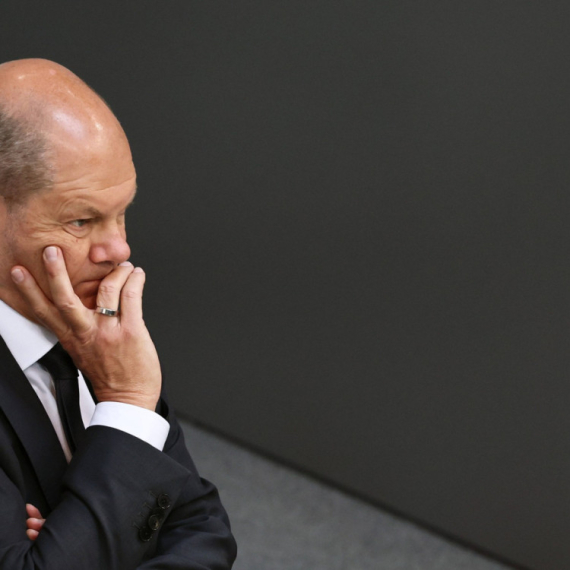


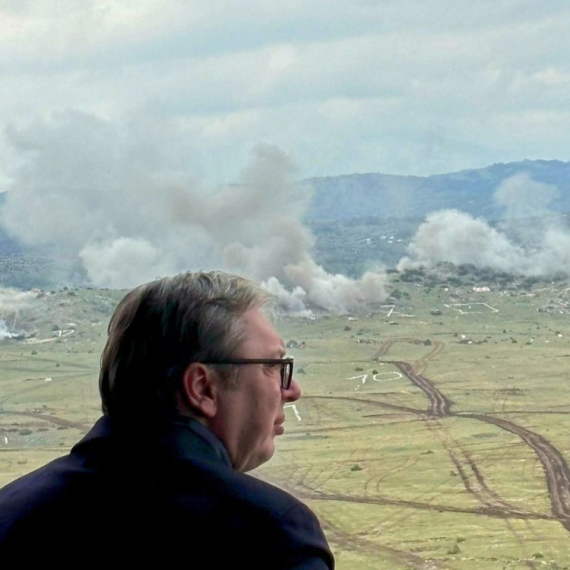
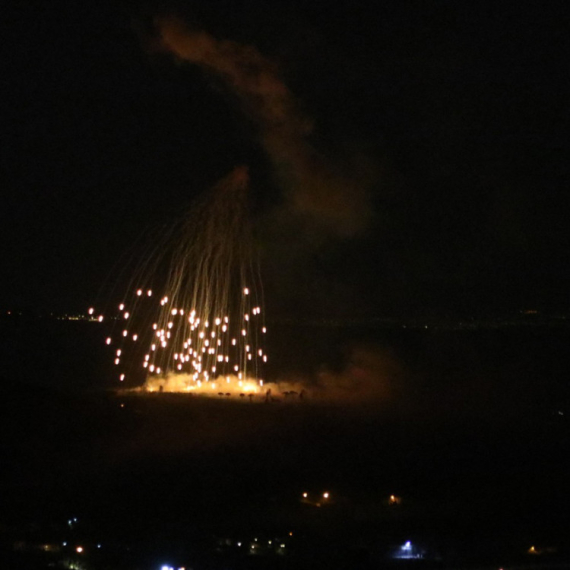

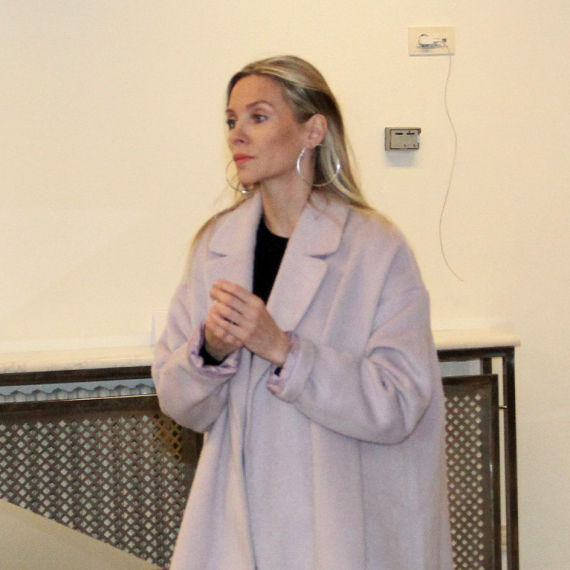





































Komentari 1
Pogledaj komentare